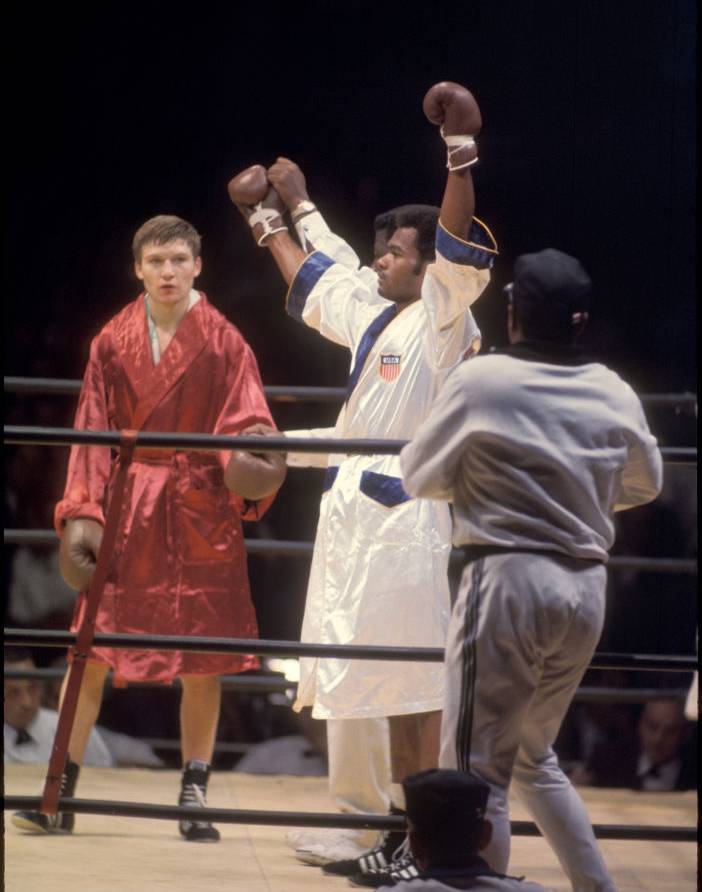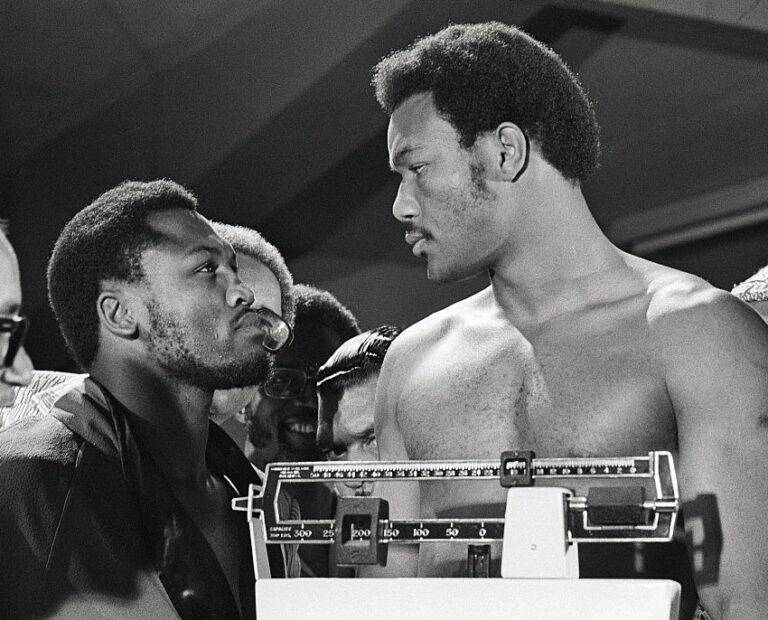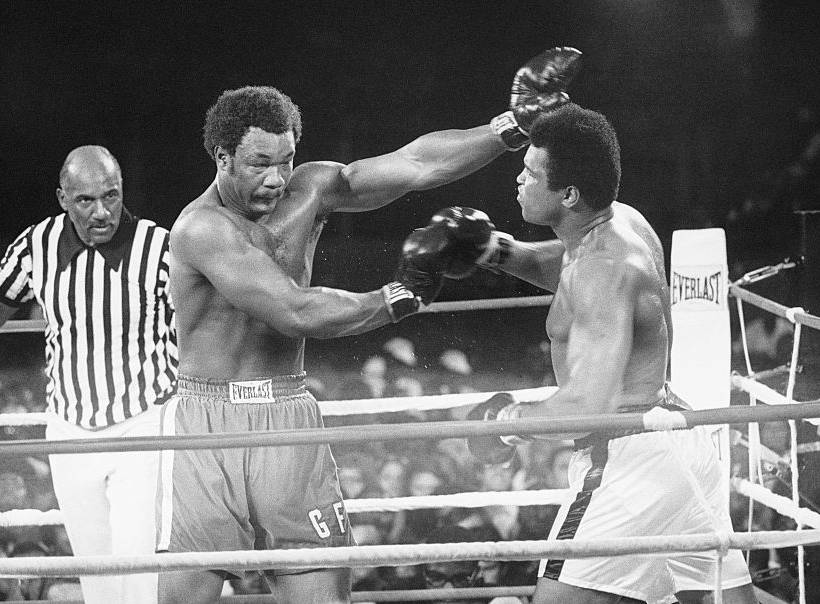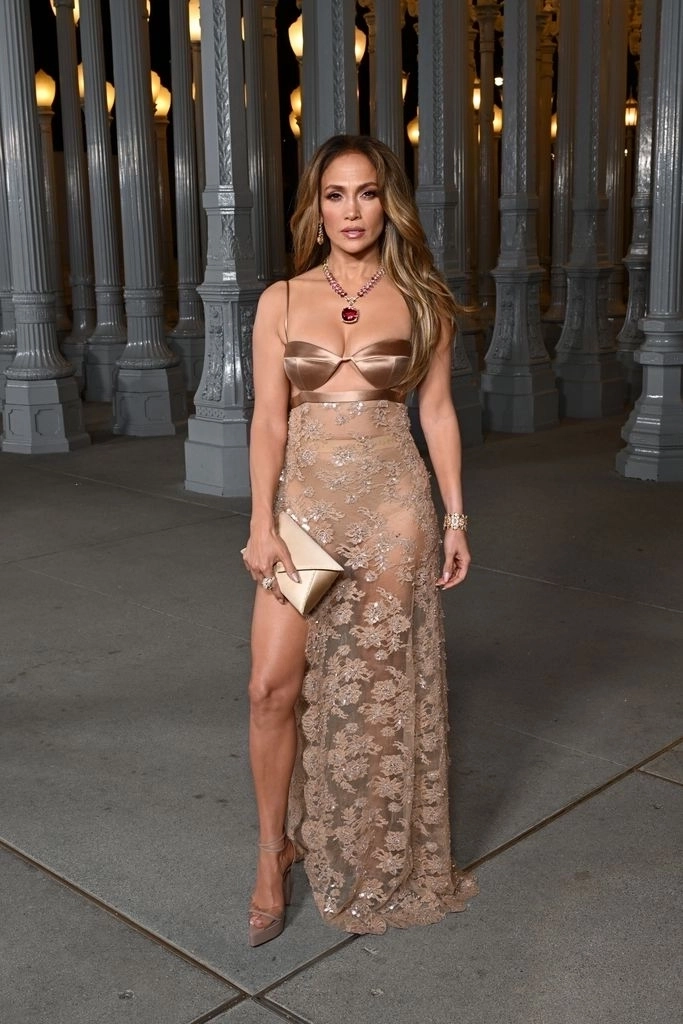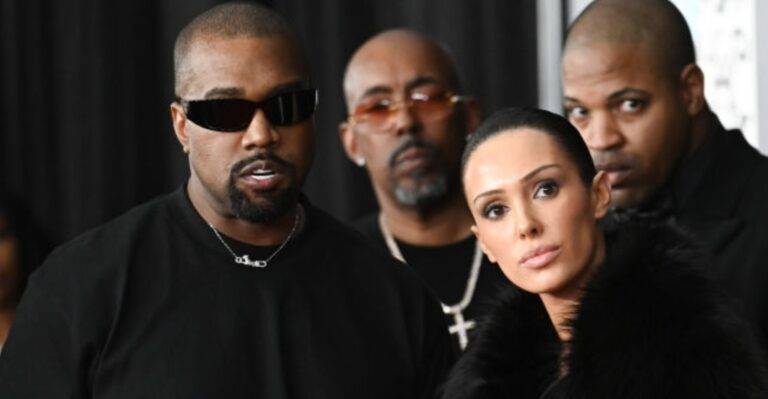Boxing legend George Foreman has passed away at the age of 76.
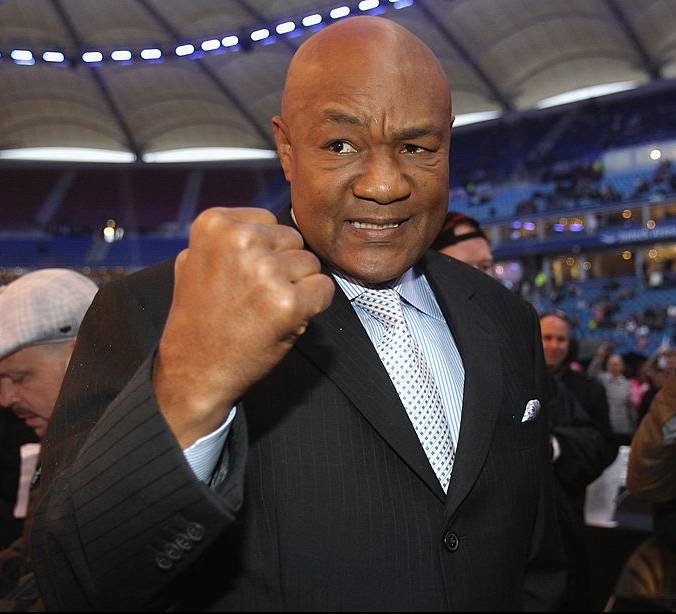
GettyImages 117969243
George Foreman has sadly passed away at the age of 76.
George Foreman, a two-time heavyweight boxing champion, Olympic gold medalist, preacher, and entrepreneur, has passed away at the age of 76. He died peacefully on Friday, March 21, 2025, surrounded by his family.
His family shared the news in a statement on Foreman’s official Instagram: “Our hearts are broken. With profound sorrow, we announce the passing of our beloved George Edward Foreman Sr., who peacefully departed on March 21, 2025, surrounded by loved ones. A devout preacher, a devoted husband, a loving father, and a proud grand and great-grandfather, he lived a life marked by unwavering faith, humility, and purpose.
“A humanitarian, an Olympian, and two-time heavyweight champion of the world, he was deeply respected—a force for good, a man of discipline, conviction, and a protector of his legacy, fighting tirelessly to preserve his good name—for his family. We are grateful for the outpouring of love and prayers, and kindly ask for privacy as we honor the extraordinary life of a man we were blessed to call our own.”
Foreman, famously known as “Big George,” was a towering figure in and out of the ring. His boxing career alone cements his place among the greats: 76 wins, 68 by knockout, and only five losses.
From the Streets of Texas to Olympic Gold
Born on January 10, 1949, in Marshall, Texas, Foreman grew up in a segregated South, raised by his single mother alongside six siblings. He had a troubled youth, dropping out of school and engaging in street robberies.
A major turning point in his life came at the age of 16 when he joined the Job Corps, where a supervisor encouraged him to channel his aggression into boxing.
Three years later, in just his 25th amateur bout, Foreman stunned the world by winning a gold medal at the 1968 Olympics in Mexico City. His opponent in the final was Jonas Cepulis of the Soviet Union.
“When I look back at the fight, all I can remember was how afraid I was,” Foreman later shared with the BBC. “I didn’t have the confidence that people thought I had… But I was told to jab, jab, jab… The left jab was my number one punch—I still think it was the best punch in boxing.”
The Rise of a Fearsome Powerhouse
Foreman turned professional in 1969 and quickly made his mark on the heavyweight division with his devastating power.
By 1973, he was undefeated and unleashed his fearsome punching power on champion Joe Frazier, knocking him down six times and defeating him in just two rounds in Kingston, Jamaica. That victory earned him his first world heavyweight title and solidified his reputation as one of the most intimidating punchers in boxing history.
However, Foreman’s reign came to a seismic halt in 1974 during one of the most iconic bouts in boxing history: the “Rumble in the Jungle” in Kinshasa, Zaire.
Facing Muhammad Ali, Foreman was a heavy favorite. Ali, who was 32 at the time and returning from a forced hiatus, employed a strategy that would become legendary: the “rope-a-dope.” Ali absorbed Foreman’s powerful blows, allowing the younger, stronger Foreman to wear himself out, as reported by Sky News.
In the eighth round, Ali delivered a stunning knockout, reclaiming the heavyweight title.
“Oh, he’s not going to last one round,” Foreman recalled, remembering what experts predicted. That night, he later said, was the “most comfortable” he ever felt in a ring—even though he was outmatched by Ali.
The loss to Ali devastated Foreman. After a second career defeat in 1977 and what he later described as a near-death experience in the locker room, he retired abruptly. That night, he would later say, changed his life forever.
A Spiritual Rebirth and the Greatest Comeback in Boxing
Returning to Texas, Foreman experienced a spiritual rebirth. He became a born-again Christian and was ordained as a minister.
He founded the Church of the Lord Jesus Christ and later the George Foreman Youth and Community Center in Houston. “We began meeting informally at various homes in Houston,” he recalled on his website. “Eventually, we bought a piece of land and an old, dilapidated building.”
After a decade away from the ring, Foreman shocked the world again in 1987 when he made a return to boxing—not for glory, but to raise funds for his youth center.
Gone was the sullen brawler of the ’70s; in his place stood a smiling, charismatic veteran. Foreman went on to rack up 24 more wins, including a gutsy 12-round battle with Evander Holyfield in 1991.
-
But the real fairy tale came in 1994. At age 45, wearing the same red trunks he wore against Ali, Foreman stepped into the ring against 26-year-old undefeated champ Michael Moorer in Las Vegas. Down on all scorecards, Foreman unleashed a thunderous right hand in the 10th round that flattened Moorer. The referee counted him out, and Foreman, now the oldest heavyweight champion in history, calmly dropped to his knees in prayer.
From the Ring to the Kitchen: A New Kind of Knockout
Foreman retired for good in 1997, with a final record of 76-5, including 68 knockouts. Yet, even outside the ring, his fame continued to soar. In the 1990s, Foreman lent his name—and his infectious smile—to a line of electric grills.
The George Foreman Grill became a pop culture phenomenon, with more than 100 million sold worldwide.
Foreman became a fixture on television, known for his warmth and charm. His catchphrase, “It’s the Lean, Mean, Fat-Reducing Grilling Machine,” was etched into the American consciousness.
But the real fairy tale came in 1994. At age 45, wearing the same red trunks he wore against Ali, Foreman stepped into the ring against 26-year-old undefeated champ Michael Moorer in Las Vegas. Down on all scorecards, Foreman unleashed a thunderous right hand in the 10th round that flattened Moorer. The referee counted him out, and Foreman, now the oldest heavyweight champion in history, calmly dropped to his knees in prayer.
From the Ring to the Kitchen: A New Kind of Knockout
Foreman retired for good in 1997, with a final record of 76-5, including 68 knockouts. Yet, even outside the ring, his fame continued to soar. In the 1990s, Foreman lent his name—and his infectious smile—to a line of electric grills.
The George Foreman Grill became a pop culture phenomenon, with more than 100 million sold worldwide.
Foreman became a fixture on television, known for his warmth and charm. His catchphrase, “It’s the Lean, Mean, Fat-Reducing Grilling Machine,” was etched into the American consciousness.
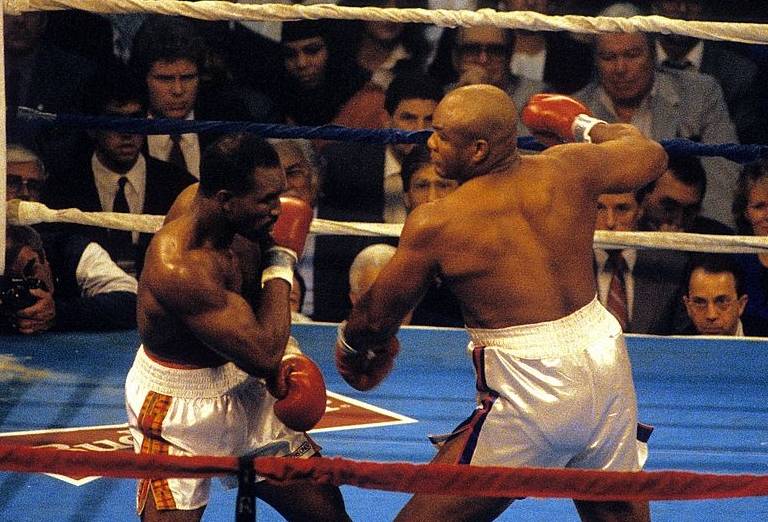
Legacy and Family
Foreman’s personal life was just as full. Married five times, he fathered 12 children, including five sons—all named George Edward Foreman. He once explained the decision with humor and solidarity, saying, “I say to them, ‘If one of us goes up, then we all go up together. And if one goes down, we all go down together!’”
Among his other ventures, Foreman also had roles in film and television, and in 2023, his life story was told in the biopic Big George Foreman: The Miraculous Story of the Once and Future Heavyweight Champion of the World.
Tributes poured in across the sports world. Fellow heavyweight legend Mike Tyson posted on X: “His contribution to boxing and beyond will never be forgotten.”
